29.05.2024
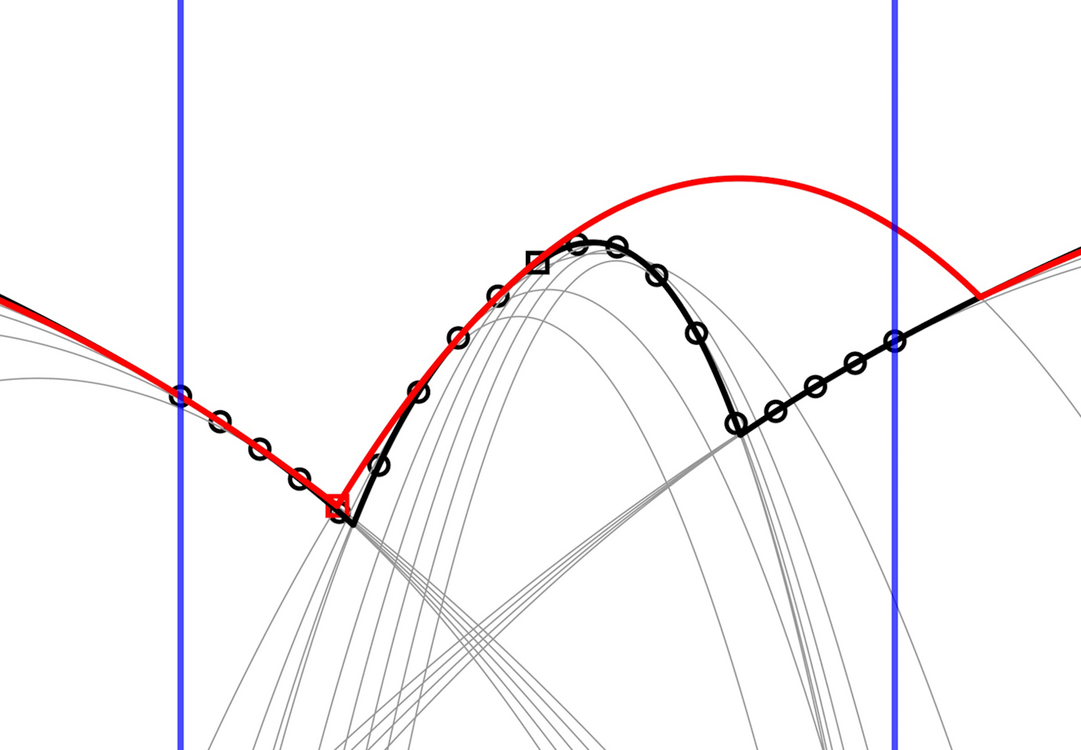
Der Forschungsantrag "Eine neuartige Ableitung und Lösungsmethodik zweiter Ordnung für nichtglatte Optimierung" wurde genehmigt:
Der Antrag wurde von Bennet Gebken im Rahmen des Walter Benjamin-Programms der Deutschen Forschungsgemeinschaft (DFG) gestellt. In dem Projekt wird ein neues Lösungsverfahren für Optimierungsprobleme mit nichtglatten Zielfunktionen untersucht. Hierbei wird ein neues Konzept für höhere Ableitungen nichtglatter Funktionen genutzt, um Modelle höherer Ordnung solcher Funktionen zu bilden.
25.04.2022
Bennet Gebken verteidigt erfolgreich seine Dissertation:
Seine Arbeit trägt den Titel "Computation and analysis of Pareto critical sets in smooth and nonsmooth multiobjective optimization".
03.12.2021
Raphael Gerlach verteidigt erfolgreich seine Dissertation:
Seine Arbeit trägt den Titel "The computation and analysis of invariant sets of infinite-dimensional systems".
07.05.2021
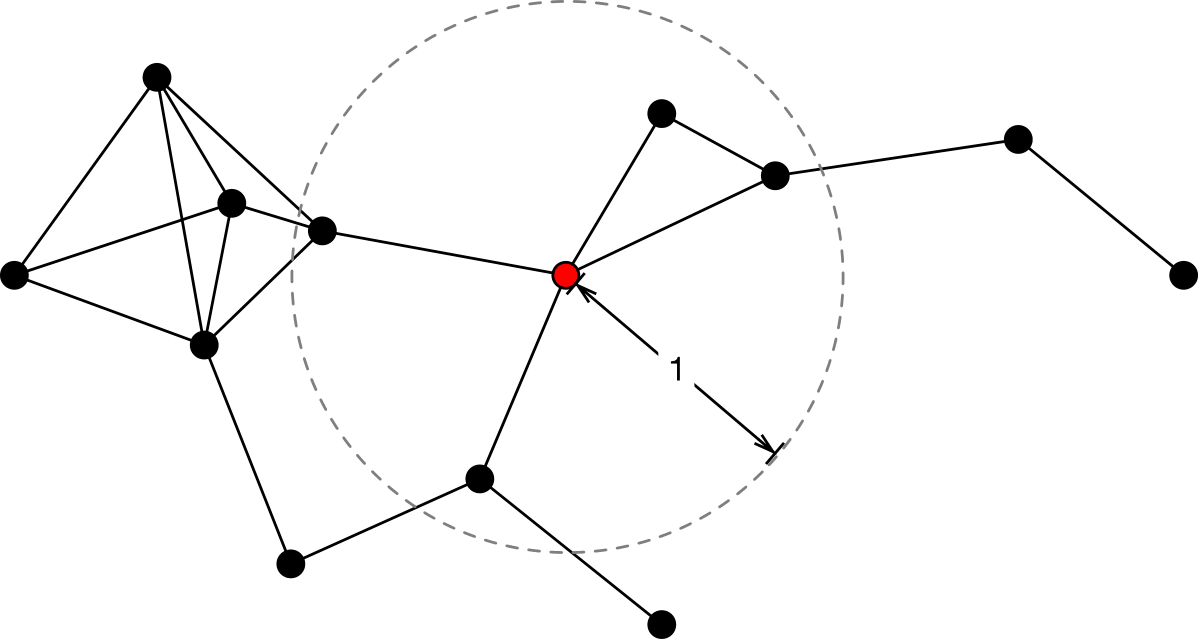
Der Forschungsantrag "Algorithmen für Schwarmrobotik: Verteiltes Rechnen trifft Dynamische Systeme" wurde genehmigt:
Der zusammen mit Prof. Dr. Friedhelm Meyer auf der Heide gestellte Antrag bei der Deutschen Fördergemeinschaft (DFG) wurde bewillgt. Das Ziel dieses Projekts ist es, die Fähigkeiten und Grenzen lokaler, verteilter Strategien für Schwärme mobiler Roboter zu untersuchen. Dabei ist unser Ansatz Techniken des verteilten Rechnens und der dynamischen Systeme zu kombinieren, um Protokolle für Formationsaufgaben besser zu verstehen.
01.04.2021
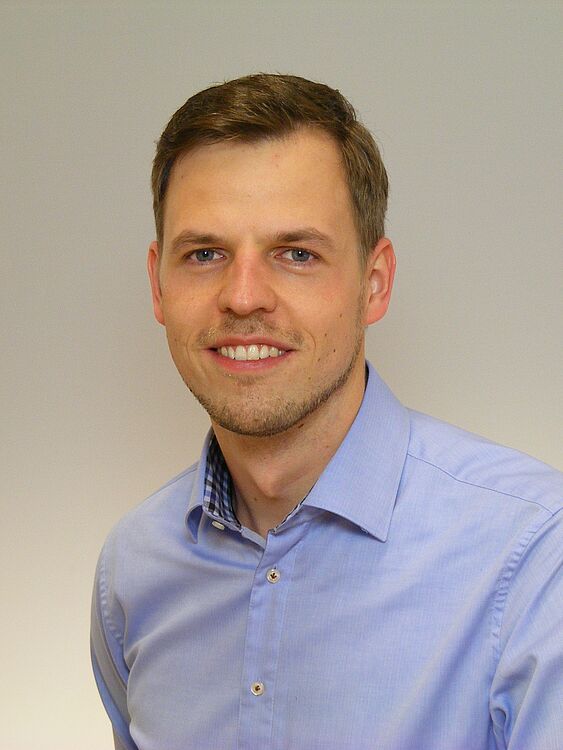
Sebastian Peitz hat den Ruf auf eine Juniorprofessur in der Informatik an der Universität Paderborn angenommen:
Er ist Leiter der Arbeitsgruppe "Data Science for Engineering".
10. - 12.10.2019

Kick-Off-Veranstaltung der zweiten Phase des DFG Schwerpunktprogrammes 1962 (Non-smooth and Complementarity-based Distributed Parameter Systems):
Die Auftaktveranstaltung zum SPP 1962 findet vom 10. - 12. Oktober 2019 in Berlin statt. In Kooperation mit Prof. Dr. Stefan Volkwein (Universität Konstanz) sind wir mit dem Projekt "Multiobjective Optimization of Non-Smooth PDE-Constrained Problems — Switches, State Constraints and Model Order Reduction" am SPP1962 beteiligt.
28.05.2019
Forschungsprojekt SET CPS gestartet:
Das Projekt "Simultanes Entwickeln und Testen von Cyber Physical Systems (CPS) am Anwendungsbeispiel eines elektrisch angetriebenen autonomen Fahrzeugs" ist in Kooperation mit dSpace und der e.Go Mobile AG gestartet. (UPB Pressemitteilung)
27.04.2017
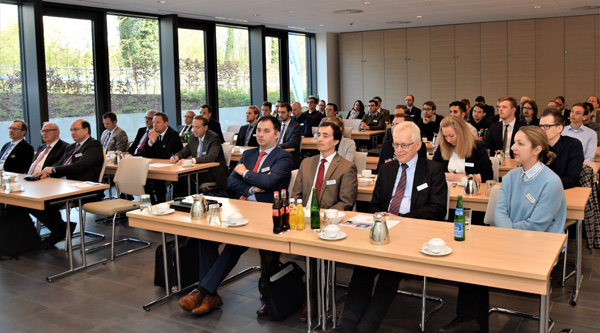
it's OWL ReSerW abgeschlossen:
Intelligente Vernetzung von Prozessen, erhebliche Ressourceneinsparungen und Einsatz neuer Greiftechniken: Das sind die Ergebnisse des Innovationsprojekts "Ressourceneffiziente selbstoptimierende Großwäscherei", das Kannegiesser gemeinsam mit vier Forschungspartnern im Spitzencluster it's OWL umgesetzt hat. Auf der Abschlusspräsentation am 27. April im Rahmen der Kannegiesser-Hochschultage zeigten sich die Beteiligten zufrieden mit den Ergebnissen.
Im Projekt ReSerW hat die Firma Kannegiesser stark mit dem CITEC (Universität Bielefeld), dem Institut für Industriemathematik (Universität Paderborn), dem Heinz Nixdorf Institut (Universität Paderborn) und dem Fraunhofer Institut für Entwurfstechnik Mechatronik zusammengearbeitet. Kannegiesser-Geschäftsführer Dirk Littmann berichtete über die Fortschritte in der Wäschereientwicklung hinsichtlich Produktivität, Qualität, Flexibilität und Energieeffizienz. Mittels intelligenter Vernetzung von Prozessen sowie den Einsatz mathematischer Optimierungsverfahren konnte eine erhebliche Einsparung von Ressourcen erreicht werden. Littmann: „Der Wasserverbrauch ist in den letzten Jahren von zehn auf drei Liter pro Kilogramm Wäsche zurückgegangen, die Energie von 2 KWh auf 0,8 KWh und der Waschmittelverbrauch konnte um 50 Prozent reduziert werden.“ (it's OWL Newsroom)
22. - 23.02.2017
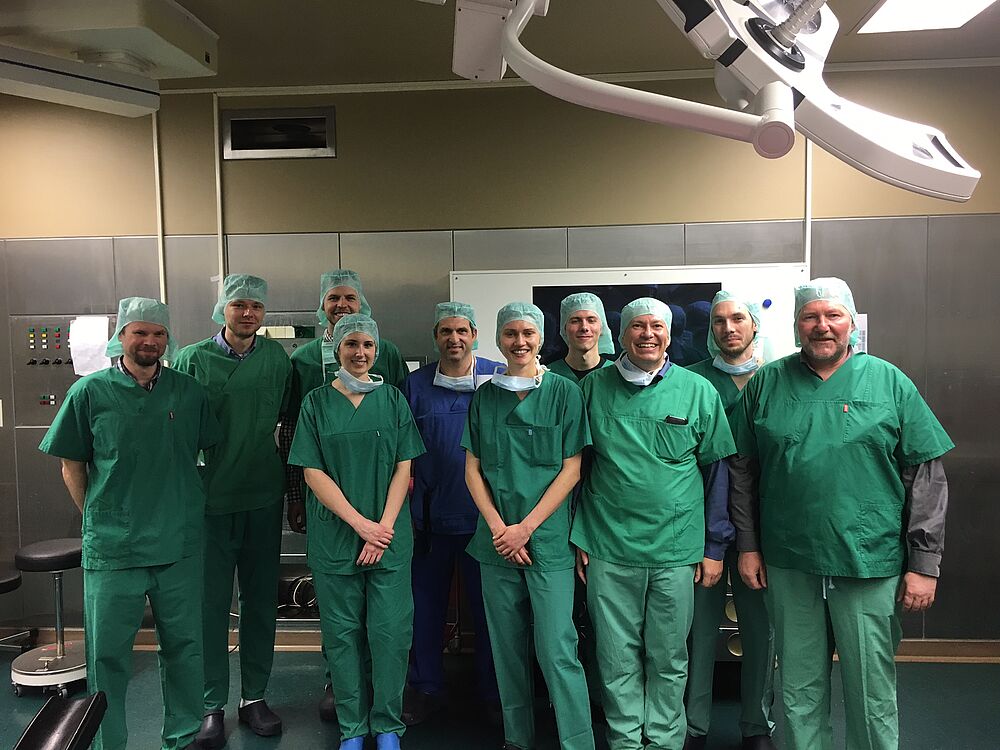
Kick-Off-Veranstaltung für das BMBF-Projekt IBOSS (Information-Based Optimization of Surgery Schedules):
Am 22. und 23. Februar 2017 fand die Auftaktveranstaltung für das Projekt IBOSS statt. Ziel der Kooperation mit der Charité, dem Zuse Institut Berlin (ZIB) sowie der FU Berlin ist Verbesserung der Planung von Operationen mit Hilfe von Optimerungsverfahren. (UPB Pressemitteilung, Projekt-Homepage)
05. - 07.12.2016
Kick-Off-Veranstaltung des DFG Schwerpunktprogrammes 1881 (Turbulent Superstructures):
Die Auftaktveranstaltung zum SPP 1881 findet vom 05. - 07. Dezember 2016 in Ilmenau statt. Wir sind mit dem Projekt "Understanding and utilizing relationships between coherent superstructures and almost invariant sets in function space" am SPP 1881 beteiligt. (Projekt-Homepage)
27. - 28.10.2016
Kick-Off-Veranstaltung des DFG Schwerpunktprogrammes 1962 (Non-smooth and Complementarity-based Distributed Parameter Systems):
Die Auftaktveranstaltung zum SPP 1962 findet vom 27. - 28. Oktober 2016 in Berlin statt. In Kooperation mit Prof. Dr. Stefan Volkwein (Universität Konstanz) sind mit dem Projekt "Multiobjective Optimal Control of Partial Differential Equations using Reduced-Order Modeling" am SPP 1962 beteiligt. (Projekt-Homepage)
17.09.2015
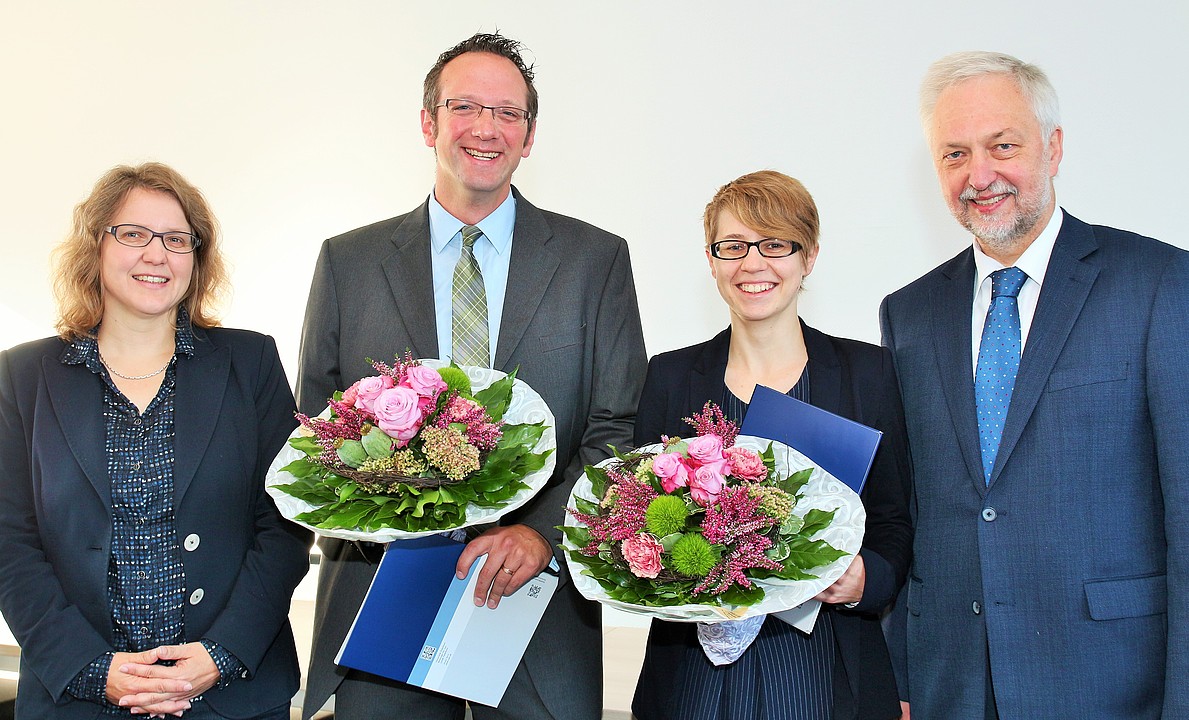
Forschungspreis 2015:
Dr. Karin Mora and Prof. Dr. Dr. Claus Reinsberger (Sportmedizinisches Institut, University of Paderborn) are awarded the research award 2015 of the University of Paderborn for the collaborative project "Neurophysiologische Epilepsie-Diagnostik durch Netzwerk-orientierte Datenanalyse" (UPB Press Release)
29.01.2015
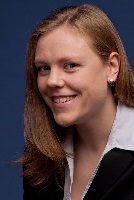
Dr. Kathrin Flaßkamp appointed member of GAMM Juniors:
The International Association for Applied Mathematics and Mechanics (GAMM) has appointed Dr. Kathrin Flaßkamp as one of 10 new members of the GAMM Juniors for her outstanding dissertation "On the Optimal Control of Mechanical Systems - Hybrid Control Strategies and Hybrid Dynamics" (UPB press release).
10.11.2014
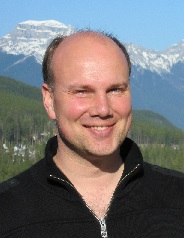
Prof. Dr. Jens Starke (TU Denmark): "Multiscale analysis of the macroscopic behaviour of particle models" (20.11.2014, 11 Uhr, Room O 1.258)
On November 20th, Jens Starke from TU Denmark will be giving a talk about "Multiscale analysis of the macroscopic behaviour of particle models ".
Abstract: A numerical multiscale approach called equation-free analysis is in the framework of slow-fast dynamical systems further improved and applied to particle models. The method allows to perform numerical investigations of the macroscopic behavior of microscopically defined systems including continuation and bifurcation analysis on the coarse or macroscopic level where no explicit equations are available. This approach fills a gap in the analysis of several complex real-world applications including particle models with intermediate number of particles where the microscopic system is too large for direct investigations of the full system and too small to justify large-particle limits. An implicit equation-free method is presented which reduces numerical errors of the analysis considerably. It can be shown, that the implicitly defined coarse-level time stepper converges to the true dynamics on the slow manifold. The method is applied to perform a coarse bifurcation analysis of microscopic particle models describing first car traffic on single lane highways and second pedestrian flow in two space dimensions. The results include an equation-free continuation of traveling wave solutions, identification of saddle-node and Hopf-bifurcations as well as two-parameter continuations of bifurcation points.
Oktober 2014
"Mathematik studieren - europäisch, praktisch, gut" - PUZ Article about the ECMI Modelling Week. (PDF)
Juli 2014
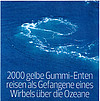
Front-page article in PM about the mathematics of ocean vortices. (PDF)
20.01.2013

Article in the series "Eine Minute Mathematik", Die Welt, 17.01.2013. (Weblink)
Januar 2013
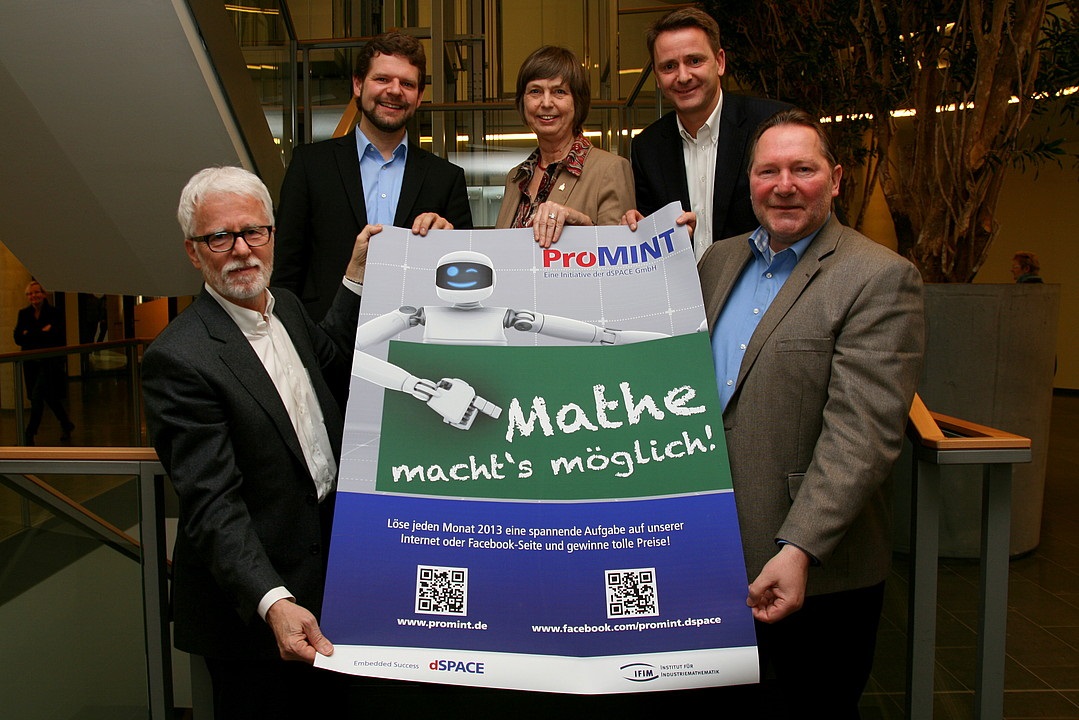
Several newspaper articles about the ProMINT project "Mathe macht's möglich".
30.03.2006

Cover story in the "NewScientist", 25.03.2006. (PDF)
